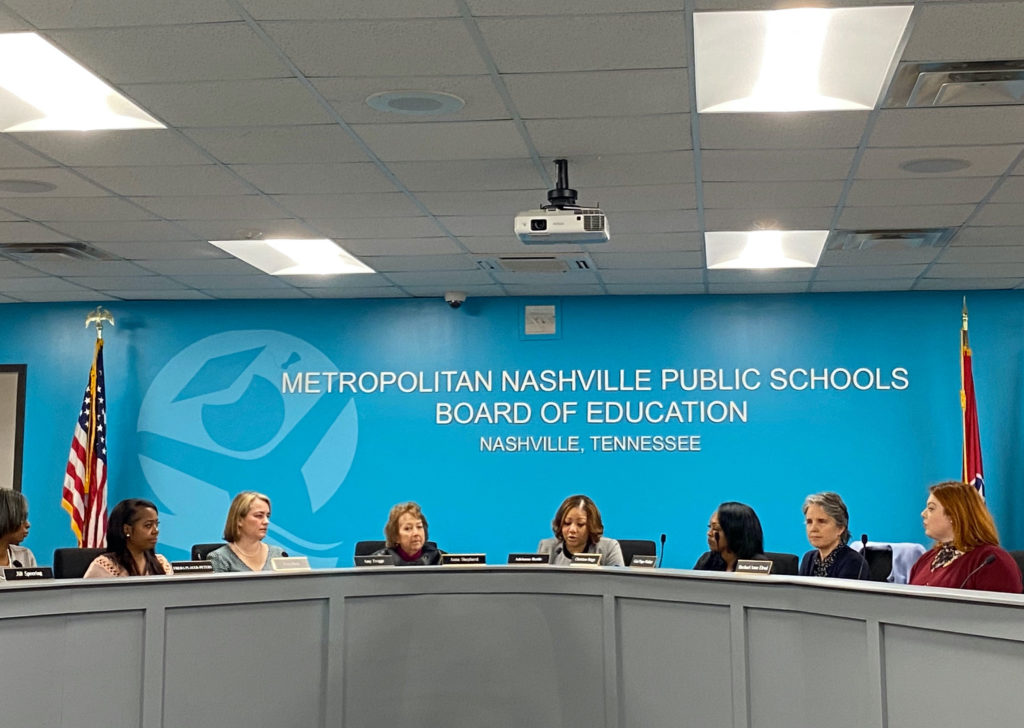
The Metro Nashville school board approved a controversial plan that will close four schools at a special called board meeting on Tuesday.
The decision was unanimous, and comes after a series of community meetings and parental pushback. School leaders say the plan will provide more resources to students in under-enrolled schools, which they say is a cause for underfunding, and why the Pearl-Cohn and Whites Creeks cluster schools included in the consolidation plan have less resources.
The merger includes seven elementary and middle schools, as well as the Cohn Learning Center program. The majority of the schools on the consolidation list are priority schools, meaning they’re performing at bottom 5% in the state. The transition will take place during the summer and go into effect next school year.
Only one school in the proposal, Alex Green Elementary School, is projected to have a utilization rate of more than 60% next school year.
The merger proposal has been in the works since 2017, but following criticism of the plan, some school board members did discuss delaying the vote. However, they instead decided that they should move forward due to the need to finalize next school year’s budget ahead of a hearing with city leaders later this week.
The district was asked to cut more than $100 million between the current and upcoming budget year due to financial shortfalls caused by the coronavirus. The closures and consolidations will save the district more than $3 million during the upcoming school year. Education officials were asked to make nearly $25 million in cuts to offset expense increases, in order to meet Mayor John Cooper’s proposed budget for the 2021 fiscal year.
Debate Over Causes
Based on the district’s student-based budgeting model, enrollment is the biggest determinant of how many dollars are allocated to individual schools — meaning the less students a school has, the smaller its budget.
Amy Frogge, who represents Bellevue and West Nashville, says the issue of closing schools begins with previous charter school expansion.
“We are following a playbook that has played out nationwide in different cities,” says Frogge. “What happens is that, when we open a larger number of charters … enrollment is going to decrease in the zoned schools, and the traditional schools that are served by the district.”
Frogge says state law puts charters at an advantage because they have to be paid first, and that cuts will always have to come from traditional neighborhood schools to balance the district’s budget.
However, some board members say in the Whites Creek cluster at least, charter schools aren’t the cause of under-enrollment.
“People are not choosing the schools because schools are not providing the service. It’s just that simple,” says Sharon Gentry, whose district includes Joelton and Whites Creek. “We can’t continue to put these numbers up of single digit literacy rates and single digit proficiency in numeracy, and expect parents to hold their kids hands and walk them into the building — when they know that building is not resourced to change that data.”
Although Gentry voted in favor of the consolidation plan, she says the board has to do a better job of addressing the root cause of enrollment declines moving forward.
“Parents don’t feel like they’re getting everything that their children need,” says Christiane Buggs, who represent East Nashville and parts of North Nashville. “If you look at numbers … it’s not the one or two charter schools that are in Bordeaux. It’s the other optional schools. It’s the magnet schools that everyone on my street sent their kids to.”

